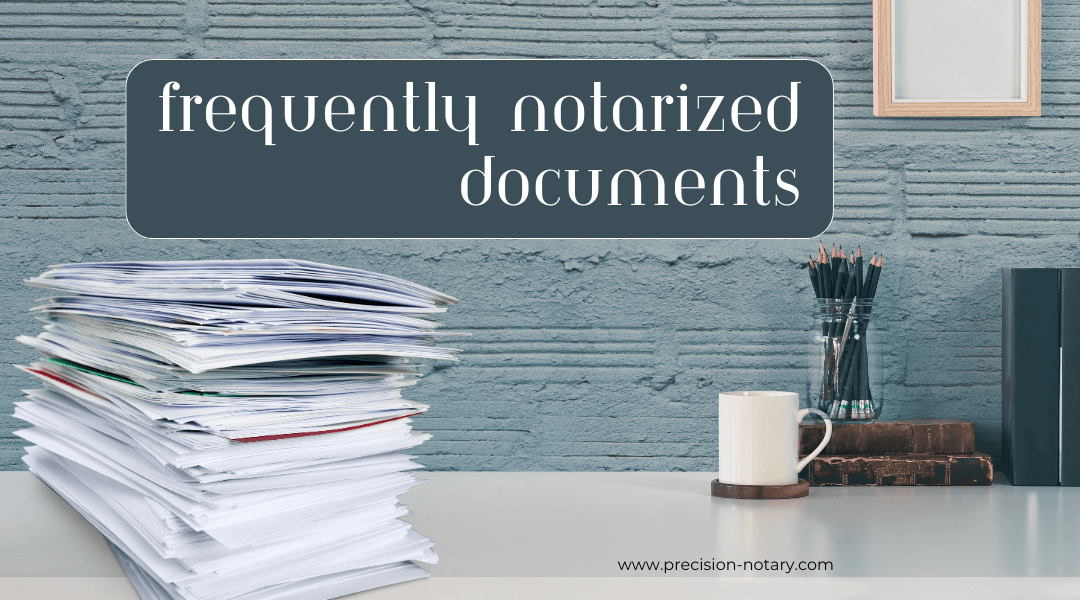Imagine signing a document that will change the course of your life—like purchasing your first home! It’s an exciting moment, filled with possibilities and dreams for the future. But did you know that without notarization, that pivotal moment might not hold legal weight?
Notarization is more than just a stamp; it’s a safeguard that ensures authenticity, legality, and protection against fraud. Let’s explore the most common documents that require notarization and why this step is so essential.
1. Real Estate Transactions
When it comes to real estate, documents like deeds, mortgages, and lease agreements often require notarization. These documents transfer ownership, establish legal obligations, or grant rights, making them foundational to property transactions. A notary public verifies the identities of the parties involved and ensures that all signatures are willingly provided, helping to prevent disputes and fraud.
Whether you’re buying, selling, or refinancing, notarization provides the legal framework that upholds the transaction’s validity.
2. Power of Attorney Forms
A power of attorney (POA) grants someone the authority to act on your behalf in legal, financial, or medical matters. Because this document transfers significant power, notarization is a critical step. A notary public confirms the identity of the grantor, verifies their understanding of the document’s implications, and ensures they’re acting of their own free will. This process safeguards against coercion and fraud, offering peace of mind to all parties involved.
3. Affidavits
An affidavit is a sworn statement of fact often used in court cases, insurance claims, or other legal proceedings. By notarizing an affidavit, the notary confirms that the affiant (the person making the statement) has affirmed its truthfulness under oath. This step gives the document legal credibility, making it an essential part of many judicial and administrative processes.
4. Loan Documents
When taking out a mortgage or securing a business loan, lenders typically require notarized signatures on key documents. Notarization verifies that the borrower understands the terms and willingly agrees to them. This step protects both the lender and the borrower by ensuring transparency and accountability. From promissory notes to loan modifications, notarization is a cornerstone of financial agreements.
5. Estate Planning Documents
Estate planning involves some of the most significant decisions you’ll make, from distributing assets to appointing guardians. Documents such as wills, trusts, and advance directives often need notarization to ensure their enforceability. A notary adds an extra layer of assurance, helping to prevent disputes and guaranteeing that your final wishes are respected. By notarizing these documents, you’re investing in their security and validity, giving you and your loved ones peace of mind.
The Importance of Professional Notary Services
Notarization is more than a procedural requirement; it’s a critical step that upholds the integrity of your most important documents. From real estate transactions to estate planning, having a professional notary review and notarize these documents is an investment in their validity and security.
At Precision Notary, I’m here to ensure your documents are handled with care and professionalism. If you have questions or need assistance, don’t hesitate to reach out.
Let’s make your important moments legally sound and worry-free.



Recent Comments